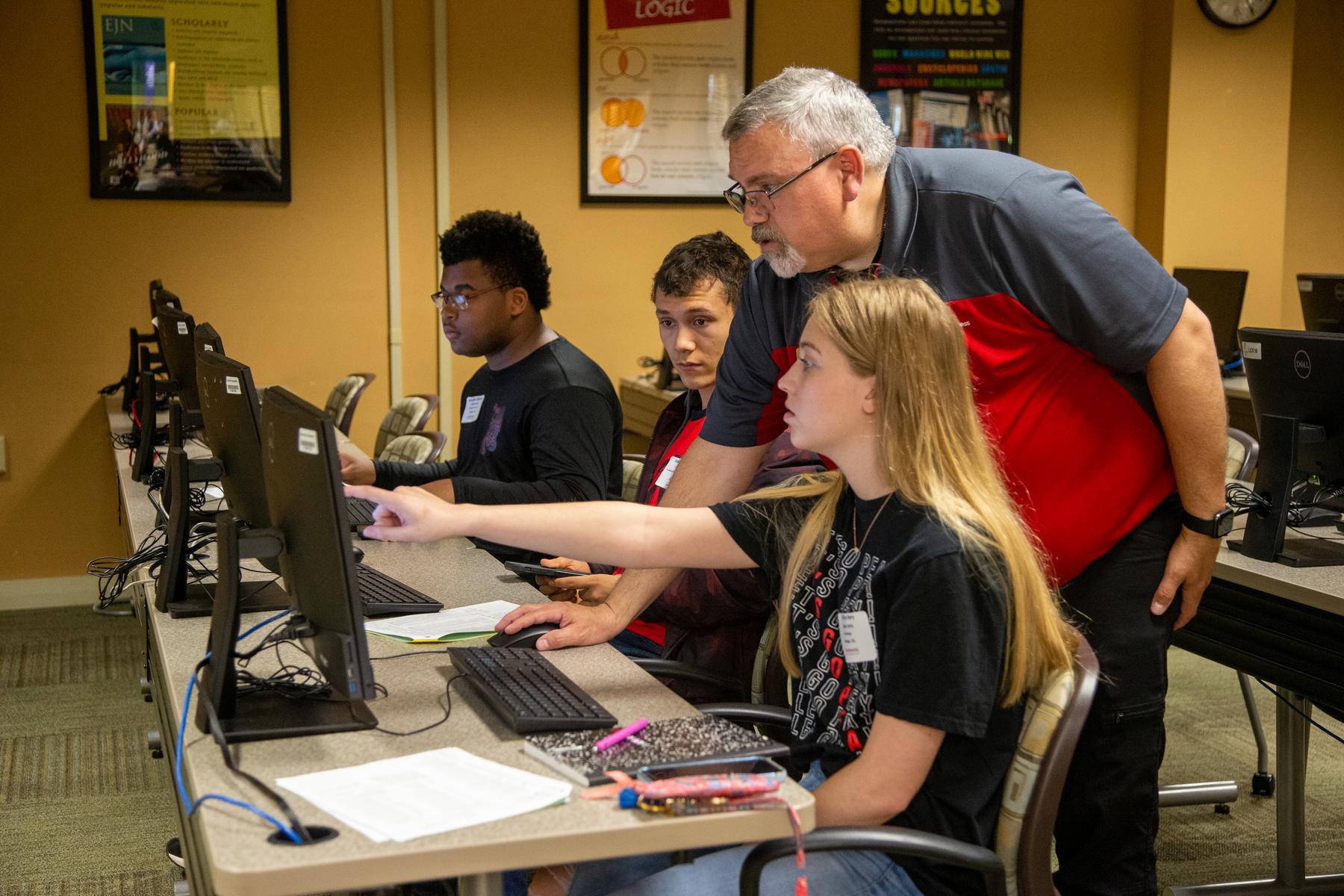APSU elevating student success with integrated labor market tools
By: Ethan Steinquest September 19, 2023
CLARKSVILLE, Tenn. - Colleges across Tennessee use labor market data to set their students up for success, but Austin Peay State University is taking things a step further by integrating it into the student experience.
Austin Peay has access to a suite of labor market tools through the consulting firm Lightcast thanks to funding from a Title III grant, including the student-focused Career Coach and the Academic Program Finder’s labor market widgets.
“Our premise is that if we can help our students understand early on why they’re making a four-year time and money investment, the odds of them persisting to graduation and being able to land a job they want increases,” said Dr. Loretta Griffy, dean of Austin Peay’s University College. “We have some early surveys and feedback from students telling us they’re appreciative not only of the tools but how we’re integrating them into the classroom conversation.”
Students can access Career Coach through AP OneStop and view labor market data for their program of study through the Academic Program Finder.
“We have lots of talented graduates, so before these widgets, we could point to examples of students in specific areas,” Griffy said. “With them, we’ve been able to expand even more. Now, we can show our students not just what graduates are doing, but what people across their field are doing.”
Career Coach
Many students start college without knowing what they want to study in the first place, and Griffy said Career Coach is designed to help them figure out a path early.
“Austin Peay has around 200 academic programs, and that can be overwhelming when you’re trying to make a choice,” she said. “Career Coach asks students a series of questions to help narrow the field. It doesn’t mean you have to pick one of the majors it recommends, but it’s a valuable source of information.”
Griffy said there are approximately 60 questions in the Career Coach survey, and each one helps create a psychological profile based on a student’s personality and interests. Using that information, the tool recommends three potential career paths.
“A lot of times, it helps students reaffirm what they want to do,” said Dr. Ryan Combs, student success coordinator for APSU’s Freshman Seminar and Peer Leader Program. “It also gives them some places they can start exploring and helps start conversations about salaries and market data they may not know about.”
Combs has used Career Coach as part of his Freshman Seminar class for the last two years and is one of a growing number of APSU instructors bringing the tool into the classroom. His students usually take the assessment midway through the semester, but career planning is a major focus of the entire course.
“From what I’ve seen, the most important thing is that it starts an open dialogue and conversation among students who may not have thought about their careers yet,” he said. “Their biggest thoughts up to this point have been about where to go to college. Now they’ve made that decision … we’re trying to get that ball rolling [on the next step].”
Resume building
After learning about potential career paths, students can also set themselves up for success through Career Coach’s resume-building tool. The program generates a list of skills based on the user’s work history, and they can use them to create a basic templated resume.
“Jobs that some of our students may think are insignificant [on a resume] are actually skill-building positions,” Griffy said. “For example, a barista at Starbucks is dealing with a diverse population while using problem-solving capabilities and customer service skills.”
Military-affiliated students can also use the resume builder to identify skills from their military occupational specialty, or MOS, and communicate them effectively to civilian employers.
“We have a lot of military-affiliated students who are moving on to officer careers in the military,” Griffy said. “But at some point, they may want to enter the civilian workforce. And when they do, this helps provide a crosswalk between their military experience and the language used in the civilian world.”
Labor market widgets
No matter what kind of degree a student wants to pursue, the Academic Program Finder’s labor market widgets can help them learn more about their options.
“We’ve been through several iterations of the Academic Program Finder, and one of the things it does for us is connect our academic programs to labor market jobs,” Griffy said. “It gives us salaries, job projections and a variety of other things students might be interested in.”
The widgets also include information about specific job openings, top employers and more that can be filtered by state or region. Griffy said the information is updated every other day and that the University plans to expand on what they can do this semester.
“This fall, we’ll be doing another run through them and talking to the deans and department chairs about the jobs the market says our students are getting,” Griffy said. “We want the lists to combine what the labor market is saying and what the faculty in our academic programs are preparing students for.”
Griffy said she also hopes to see the University’s labor market tools expand into the general education curriculum this year, which would allow them to reach a greater number of students early in their college careers.
“It’s really important to use data to build the right programs and experiences, but you have to give students the opportunity to find and discover it,” she said. “I believe that when we use the talent of our faculty to develop and build fantastic programs, the institution needs to push that work to the next level by letting students know how and why it brings value to them – and to the community.”
